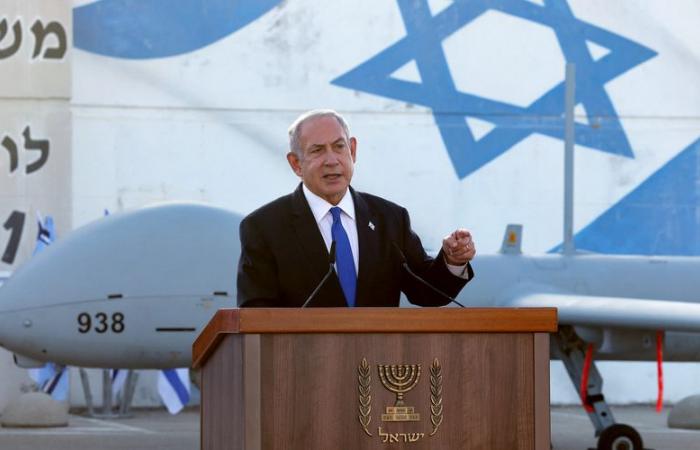the essential
Without filter, the column of Mémona Hintermann, great reporter, former member of the Superior Audiovisual Council. Today, the fall of Bashar al-Assad's regime could benefit Benjamin Netanyahu, the Israeli Prime Minister.
The fall of the Al-Assad regime is the best news of the year for Israel. And probably for a very long time, even. You have to observe – with a compass – the geography of this region, which has suffered from wars for more than 75 years, to grasp the big bang that is happening. On the map of the Near and Middle East, two enemies face each other: Iran and Israel. Two neighbors. Not by their land borders but in fact!
DDM
Through a system of alliances and massive support for armed groups, Iran had de facto moved dangerously closer to Israel than ever before. The country that served as a corridor for attacks was Syria. Logistics corridor, platform for supplies, preparations, combat training. Because of the fear of being physically eliminated by a Mossad commando, the Al-Assad clan did not directly attack Israel, turning a blind eye to open secrets for more than 20 years while pretending to ignore the merry-go-round of Iran, godfather of Hezbollah. Hezbollah is Lebanese, the Syrian border is a matter of a few dozen kilometers to cross. From Syria, the arsenal of missiles, rockets and other war toys headed to Lebanon to… attack Israel. More than 50 billion dollars invested by Tehran, according to specialists on the subject.
Since the Iranian revolution in 1979, Ayatollah Khomeini and his successors have had an obsession that has never been denied: destroying the Jewish state. For around twenty years, this obsession has been militarized by the organization of an “axis of resistance” stretching from Yemen to Gaza via Iraq, then Syria and Lebanon. A road map shows how short the distances are on this geopolitical checkerboard and how great Israel's vulnerability is despite its unrivaled military potential. These are the springs of this axis which broke with the fall of Al-Assad. The ransacking of the Iranian embassy in Damascus on the very day of the takeover of power by the HTC Islamists illustrated the new situation. Two days before, the flight of the famous Revolutionary Guards had announced the failure of the mullahs' strategy. Iran today finds itself isolated. Since the massacres of October 7, Benjamin Netanyahu and his strategists have undertaken to dismantle, piece by piece, the mechanism created and fueled by Tehran. It is this subject that lies at the heart of the change of power in Syria.
The shock wave spread well beyond the regime change. Did the Israelis give a push so that Al-Assad was forced to take a one-way flight to Moscow? Objectively yes, in particular by weakening his regime against the rebels, by eliminating one by one the leaders of Hezbollah hosted in Syria. Putin's Russia, which abandoned Assad, understood this. And behind the curtain of appearances, it is not impossible to think that the new strongman Ahmed Al-Charaa could have committed to emissaries from Jerusalem to take care of Syria rather than serving as an accomplice to the interests of X or Y.
Non-aggression pact against Israelis? Israeli Islamists and strategists have a common enemy: Iran. Yesterday at the center of the game, it was Iran which found itself seriously weakened. The leader of the Revolution recognized a failure. Will political lucidity lead the Iranians to back down – by concluding an international agreement on the non-development of their nuclear weapon? This is a crucial issue, obviously.
The other major issue – to organize the future – depends greatly on the Israelis. If their Prime Minister's war strategy proves to be a winner, the fields of ruins around Israel defy belief. Can we leave it there? How can we prevent anger and frustration from bringing back existential threats? What lasting peace can we establish… when Hamas has laid down its arms… when what remains of Hezbollah has understood that it would be better to live in Lebanon than to die under Israeli bombs? Benjamin Netanyahu had bet on bringing down his country's enemies after the massacres of October 7. For its success to go beyond the temporary, it must bring new prospects for peace to emerge from the new pattern which disrupts the balance of power.






